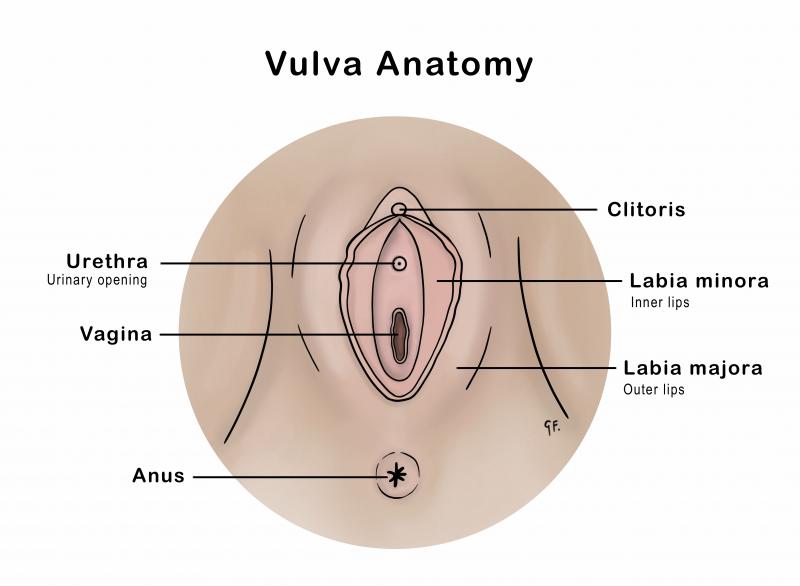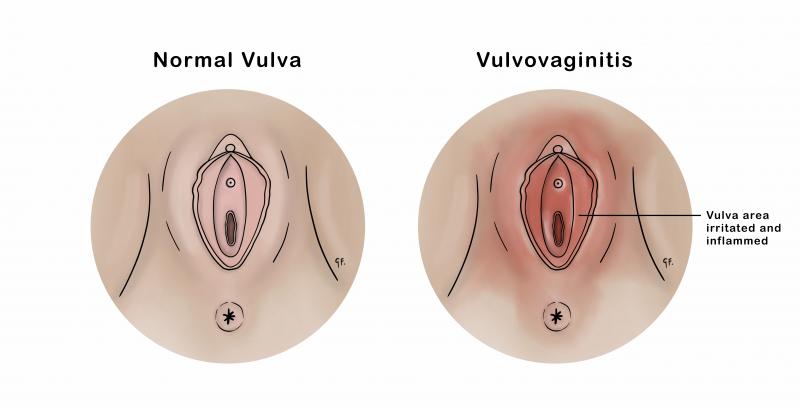Vulval Conditions In Children
Vulval Conditions In Children
Vulval conditions are common in tamariki. They can cause symptoms such as itch and discomfort. Read to find out about some of the common conditions that can affect the vulva in tamariki.
Key points about vulva conditions in children
- the vulva includes the outer genitals in females
- vulval conditions are common in tamariki
- they may cause symptoms such as itch or redness around the vulva
- good vulval skin care can help lessen the chance of some vulval conditions
What is the vulva?
The vulva includes all the outer genitals in females including the vagina and urethra (where wee drains from).

What are the most common vulval conditions in children?
Some conditions that affect the vulva in tamariki include:
- vulvovaginitis
- labial fusion
- threadworms
- lichen sclerosus
Vulvovaginitis
What is vulvovaginitis?
Vulvovaginitis is irritation of the vagina and vulva (the outer female genitals). Mild vulvovaginitis is common in tamariki.
Symptoms of vulvovaginitis include:
- itch
- redness of the skin around the vulva
- discomfort when passing urine
- discharge from the vagina

See the KidsHealth page on vulvovaginitis to learn more about what causes it and how to manage it
Labial fusion
What is labial fusion?
Labial fusion is when the two flaps (the labia minora) on either side of the vaginal opening are joined together. Labial fusion is common. In most cases, it resolves as your child grows, and no treatment is needed.
If your child has labial fusion, you will see the labia joined together instead of two separate labia. There usually will be a small opening along the join to allow wee to drain. Most tamariki with labial fusion will have no other symptoms.

See the KidsHealth page on labial fusion to learn more about what causes it
Worms
What are worms?
Worms are common in preschool and school-aged tamariki. The most common type of worm is a threadworm, also called a pinworm. Worms are a type of parasite that infects the digestive tract.
Signs and symptoms of worms in tamariki include:
- a very itchy bottom, usually worse at night
- in girls, itching and redness can also be around the vulva and vagina
- tamariki may complain of a ‘shooting pain’ in the vagina
- not sleeping well
- not wanting to eat as much
- being irritable
See the KidsHealth page on threadworms to learn more about what causes them and how to manage it
Lichen sclerosus
What is lichen sclerosus?
Lichen sclerosus is a skin condition that generally affects the skin around the vulva and anus. It is uncommon but can affect tamariki before puberty.
Signs and symptoms of lichen sclerosus include:
- a rash of white patches on the skin
- itch
- pain when weeing
- constipation due to painful cracks in the skin around the bottom
- red and irritated skin (in the beginning) that turns into white, thickened patches of skin later
See the KidsHealth page on lichen sclerosus to learn more about what causes it and how to manage it
Is vulval skin care important in children?
Because the skin around the vulva can be thin in younger tamariki, it can become easily irritated and inflamed. There are several ways you can help to care for this skin to lessen the chance of irritation.
See the KidsHealth page on vulval skin care for more information
This page last reviewed 31 August 2023.
Do you have any feedback for KidsHealth?
If you have any feedback about the KidsHealth website, or have a suggestion for new content, please get in touch with us.
Email us now